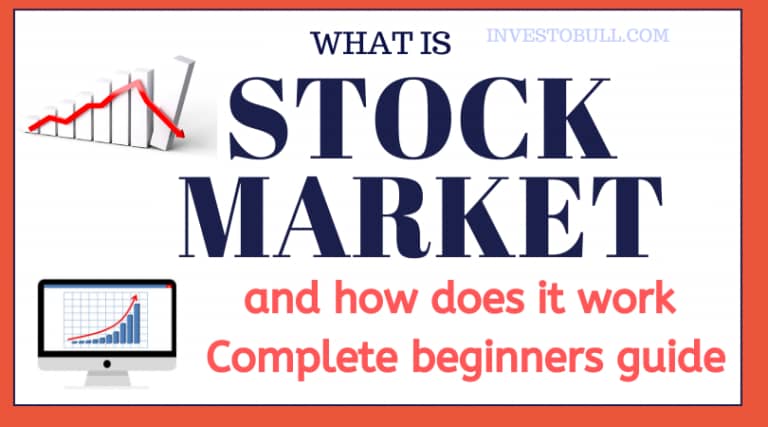Stock Market Hacks You Wish You Knew Earlier
Stock Market? Investing in the stock market can seem like a puzzle with many pieces that don’t quite fit. You hear stories of people making millions overnight, but also of others losing their savings. The truth is, the stock market has been one of the best ways to grow wealth over the long term. Since 1926, the S&P 500 has delivered an average annual return of about 10%. That means if you had invested $1,000 back then, it could have grown to over $5 million today, thanks to compound growth. Yet, many investors don’t reach these results because they lack the right strategies.
The good news? You don’t need to be a financial expert to succeed. There are simple, proven hacks that can help you invest smarter, avoid common pitfalls, and build wealth steadily. These hacks come from decades of research, insights from legendary investors, and market data. Are you ready to learn the secrets that could have saved you years of mistakes? Let’s dive in.
1. Think Long-Term, Not Short-Term

One of the biggest traps investors fall into is trying to make quick profits. The stock market is often seen as a place to “get rich fast,” but this mindset usually leads to losses. Research from the University of Chicago shows that short-term traders often underperform the market after fees and taxes. In fact, the majority of day traders lose money.
Warren Buffett, one of the most successful investors ever, advises, “Our favorite holding period is forever.” This means buying shares in solid companies and holding them for years, even decades. Why? Because companies grow over time, and their stock prices tend to rise with their profits. When you hold long-term, you benefit from compound interest — your earnings generate more earnings.
Holding stocks long-term also reduces the impact of market volatility. The stock market can be unpredictable in the short run, but over 10, 20, or 30 years, it has historically moved upward. For example, during the 2008 financial crisis, the market dropped sharply, but by 2013 it had recovered and reached new highs. Investors who stayed calm and held on saw their portfolios grow significantly.
Why Long-term Investing Works in this market
- Compound Growth: Earnings reinvested generate more earnings.
- Lower Costs: Fewer trades mean lower fees and taxes.
- Reduced Stress: Less worry about daily market swings.
- Better Returns: Historical data shows long-term investors outperform traders.
Research Insight
A study by DALBAR, a financial research firm, found that the average investor earned just 5.25% annually over 20 years, far below the market’s 9.85%. This gap is mainly due to emotional trading and short-term thinking.
2. Diversify to Reduce Risk

Imagine putting all your money into one stock. If that company does well, you win big. But if it fails, you lose almost everything. Diversification is the strategy of spreading your investments across many companies, industries, and even countries. This reduces risk because poor performance in one area can be balanced by gains in another.
How to Diversify Your Investment Portfolio: 7 Essential Techniques
John Bogle, the founder of Vanguard and pioneer of index funds, said, “Don’t look for the needle in the haystack. Just buy the haystack.” This means investing in broad market index funds that include hundreds or thousands of stocks. For example, an S&P 500 index fund owns shares in 500 of the largest U.S. companies.
Benefits of Diversification in Stock Market
- Risk Reduction: Less impact from any single stock’s poor performance.
Smoother Returns: More stable investment growth over time. - Access to Growth: Participation in multiple sectors and markets.
- Lower Costs: Index funds often have very low fees.
Academic Research
A study by Vanguard showed that a portfolio diversified across stocks, bonds, and international markets had a 30% lower risk of loss compared to a portfolio focused only on U.S. stocks. Diversification does not eliminate risk completely but makes it manageable.
—
3. Cut Losses Quickly

It’s natural to hope a losing stock will bounce back, but sometimes it doesn’t.5 Signs It’s Time To Sell a Stock (Before It’s Too Late) Holding on to bad investments can drain your portfolio. George Soros, a legendary investor, said, “It’s not whether you’re right or wrong that’s important, but how much money you make when you’re right and how much you lose when you’re wrong.” This highlights the importance of managing losses.
One way to do this is by setting a stop-loss order. This is an automatic instruction to sell a stock if its price falls below a certain point. It helps prevent emotional decisions and limits losses. Another method is deciding beforehand how much loss you are willing to accept, for example, 10% below your purchase price.
Why Cutting Losses Matters
- Protects Capital: Keeps your money safe for better opportunities.
- Improves Overall Returns: Avoids deep losses that are hard to recover.
- Encourages Discipline: Prevents emotional attachment to bad investments.
Supporting Data
According to a study by Dalbar, investors who held onto losing stocks longer than necessary often suffered bigger losses and slower recovery times.
—
4. Avoid Following the Crowd Blindly

Many investors buy stocks because they are popular or trending. This herd behavior can cause bubbles—when prices rise far beyond a company’s true value—and crashes when the bubble bursts. Yale University research shows that following the crowd often leads to buying high and selling low.
Instead, focus on companies with strong financial health, good management, and solid growth prospects..Timing the Market Like a Pro: Stock Market Look beyond the hype and analyze the numbers. Avoid investing based on rumors, social media trends, or “hot tips.” These often lead to costly mistakes.
How to Avoid Herd Mentality
- Do Your Own Research: Read company reports and financial statements.
- Check Valuations: Avoid stocks that seem overpriced.
- Stay Calm: Don’t rush to buy or sell based on market noise.
- Use Trusted Sources: Follow reputable financial news and analysis.
Expert Quote
Benjamin Graham, known as the father of value investing, said,“The investor’s chief problem—and even his worst enemy—is likely to be himself.” This reminds us that emotional and crowd-driven decisions hurt investors.
—
5. Be Patient and Wait for the Right Opportunity

Not every stock is a good buy at every time. Sometimes the best decision is to wait. The stock market offers thousands of companies, so you don’t have to rush into poor investments. Patience allows you to buy stocks when they are undervalued or when market conditions improve.
Buying at the right price matters. Buying Stocks: 3 Key Indicators Every Investor Should Watch Before Buying Stocks Research from the University of Pennsylvania shows that investors who buy stocks at lower price-to-earnings (P/E) ratios tend to earn higher returns. Waiting for good deals can improve your profits.
How to Practice Patience
- Set Investment Criteria: Define what makes a stock attractive.
- Watch Market Cycles: Look for dips or corrections to buy.
- Avoid Impulse Buys: Don’t rush based on emotions or hype.
- Keep Cash Ready: Having money available lets you act when opportunities arise.
—
6. Understand the Equity Risk Premium
Stocks generally offer higher returns than safer investments like bonds because they come with more risk. This extra return is called the equity risk premium. According to research by the National Bureau of Economic Research, the equity risk premium averages between 3% and 7% annually.
Knowing this helps investors set realistic expectations and stay committed. If you expect stocks to outperform bonds by about 5% per year, you can plan your investments accordingly. It also explains why stocks can be volatile but rewarding over time.
Why Equity Risk Premium Matters
- Sets Return Expectations: Helps avoid disappointment during downturns.
Justifies Risk: Explains why investors choose stocks over bonds.
- Supports Long-Term Investing: Encourages holding through volatility.
—
7. Use Dollar-Cost Averaging
Trying to time the market perfectly is nearly impossible, even for professionals. Dollar-cost averaging is a strategy where you invest a fixed amount regularly, no matter what the market is doing. This approach spreads out your purchases and lowers the average cost per share over time.
For example, investing $200 every month means you buy more shares when prices are low and fewer when prices are high. Over time, this smooths out the ups and downs and reduces the risk of investing a lump sum at the wrong time.
Benefits of Dollar-Cost Averaging
- Reduces Timing Risk: Avoids investing all money at market peaks.
- Builds Discipline: Encourages regular investing habits.
- Simplifies Investing: No need to predict market moves.
- Works Well for Beginners: Easy to start and maintain.
Research Support
A study by Vanguard found that dollar-cost averaging reduces the risk of investing a lump sum during market highs without significantly reducing returns over the long term.
—
8. Keep Emotions Out of Investing
Emotions like fear and greed often lead to poor investment decisions. When the market falls, fear can cause panic selling at low prices. When it rises, greed can push investors to buy overpriced stocks. André Kostolany said, “Stock market profits are compensation for pain and suffering.” This means successful investing requires patience and emotional control.
To keep emotions in check:
– Stick to your investment plan.
– Avoid checking your portfolio too often.
– Focus on long-term goals, not short-term fluctuations.
– Use automated investing tools if needed.
Why Emotional Control Matters
- Prevents Panic Selling: Avoids locking in losses.
- Stops Overbuying: Avoids chasing hype.
- Improves Decision-Making: Encourages rational choices.
—
9. Take Calculated Risks

Not all risks are bad. Jeff Bezos once said, “Given a 10% chance of a 100 times payoff, you should take that bet every time.” Smart investors look for opportunities where the potential reward far outweighs the risk. This means doing thorough research and understanding what you’re investing in..Smart Investment Strategies for Beginners.
Calculated risks involve:
– Analyzing company fundamentals.
– Understanding market conditions.
– Evaluating potential downsides.
– Diversifying to manage risk.
Taking smart risks can lead to significant gains, but reckless bets often lead to losses.
—
10. Stay Informed with Trusted Sources

The stock market is full of information, but not all of it is reliable. Using trustworthy sources helps you make better decisions. Official company filings, respected financial news outlets, and academic research provide accurate and timely data.. 10 Must-Read Investment Books for Aspiring Investors
Avoid rumors, unverified social media tips, and biased opinions. Instead, subscribe to reputable newsletters, follow expert analysts, and use tools like SEC filings and earnings reports.
Reliable Sources to Follow
– SEC.gov for official filings.
– Bloomberg, Reuters, and CNBC for news.
– Morningstar and Seeking Alpha for analysis.
– University research papers and financial books.
—
FAQs
How much money do I need to start investing?
A: You can start with as little as $50 or $100 using apps that allow fractional shares. The key is to begin early and invest regularly.
Should I pick individual stocks or invest in funds?
A: For most people, diversified index funds or ETFs are safer and easier. Picking stocks requires time and knowledge.
What should I do during a market crash?
A: Stay calm, avoid panic selling, and consider buying quality stocks at lower prices.
How often should I check my investments?
A: Checking too often can lead to emotional decisions. Review your portfolio quarterly or semi-annually.
Can I rely on social media tips?
A: No. Social media can spread rumors and hype. Always verify information from trusted sources.
—
The stock market offers opportunities to grow your wealth, but success requires smart strategies and patience. These 10 hacks are simple yet powerful tools that can help you invest wisely. By thinking long-term, diversifying, managing risks, and staying informed, you can build a strong financial future.
Investing is a journey, not a sprint. The sooner you start applying these hacks, the more time your money has to grow. So, what’s stopping you from taking control of your financial future today?
—
Sources & Further Reading
– [S&P 500 Historical Returns – Aswath Damodaran]http://(http://pages.stern.nyu.edu/~adamodar/New_Home_Page/datafile/histretSP.html)
– [Warren Buffett’s Annual Letters] https://www.berkshirehathaway.com/letters
– [Vanguard Research on Diversification. https://www.vanguard.com)
– [Yale University Research on Herd https://som.yale.edu
– [National Bureau of Economic Research – Equity Risk Premium.(https://www.nber.org)
– [André Kostolany Quotes] https://www.brainyquote.com/quotes/andre_kostolany_121719
– [Jeff Bezos Quotes on https://www.inc.com/jeff-bezos










kmbzil
NEbAh DxKgvMV IATL
6c0x3e
c9mawa
ajmu7c